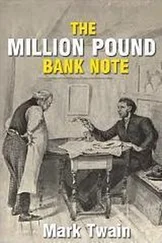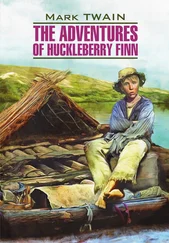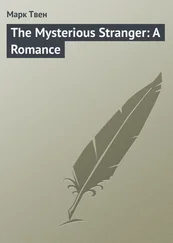Марк Твен - The Tragedy of Pudd'nhead Wilson
Здесь есть возможность читать онлайн «Марк Твен - The Tragedy of Pudd'nhead Wilson» — ознакомительный отрывок электронной книги совершенно бесплатно, а после прочтения отрывка купить полную версию. В некоторых случаях можно слушать аудио, скачать через торрент в формате fb2 и присутствует краткое содержание. Издательство: Иностранный паблик, Жанр: foreign_antique, foreign_prose, на английском языке. Описание произведения, (предисловие) а так же отзывы посетителей доступны на портале библиотеки ЛибКат.
- Название:The Tragedy of Pudd'nhead Wilson
- Автор:
- Издательство:Иностранный паблик
- Жанр:
- Год:неизвестен
- ISBN:нет данных
- Рейтинг книги:4 / 5. Голосов: 1
-
Избранное:Добавить в избранное
- Отзывы:
-
Ваша оценка:
- 80
- 1
- 2
- 3
- 4
- 5
The Tragedy of Pudd'nhead Wilson: краткое содержание, описание и аннотация
Предлагаем к чтению аннотацию, описание, краткое содержание или предисловие (зависит от того, что написал сам автор книги «The Tragedy of Pudd'nhead Wilson»). Если вы не нашли необходимую информацию о книге — напишите в комментариях, мы постараемся отыскать её.
The Tragedy of Pudd'nhead Wilson — читать онлайн ознакомительный отрывок
Ниже представлен текст книги, разбитый по страницам. Система сохранения места последней прочитанной страницы, позволяет с удобством читать онлайн бесплатно книгу «The Tragedy of Pudd'nhead Wilson», без необходимости каждый раз заново искать на чём Вы остановились. Поставьте закладку, и сможете в любой момент перейти на страницу, на которой закончили чтение.
Интервал:
Закладка:
“Now who would b’lieve clo’es could do de like o’ dat? Dog my cats if it ain’t all I kin do to tell t’other fum which, let alone his pappy.”
She put her cub in Tommy’s elegant cradle and said —
“You’s young Marse Tom fum dis out, en I got to practise and git used to ’memberin’ to call you dat, honey, or I’s gwine to make a mistake some time en git us bofe into trouble. Dah – now you lay still en don’t fret no mo’, Marse Tom – oh, thank de good Lord in heaven, you’s saved, you’s saved! – dey ain’t no man kin ever sell mammy’s po’ little honey down de river now!”
She put the heir of the house in her own child’s unpainted pine cradle, and said, contemplating its slumbering form uneasily —
“I’s sorry for you, honey; I’s sorry, God knows I is, – but what kin I do, what could I do? Yo’ pappy would sell him to somebody, some time, en den he’d go down de river, sho’, en I couldn’t, couldn’t, couldn’t stan’ it.”
She flung herself on her bed and began to think and toss, toss and think. By and by she sat suddenly upright, for a comforting thought had flown through her worried mind —
“’Tain’t no sin — white folks has done it! It ain’t no sin, glory to goodness it ain’t no sin! Dey’s done it – yes, en dey was de biggest quality in de whole bilin’, too — kings! ”
She began to muse; she was trying to gather out of her memory the dim particulars of some tale she had heard some time or other. At last she said —
“Now I’s got it; now I ’member. It was dat ole nigger preacher dat tole it, de time he come over here fum Illinois en preached in de nigger church. He said dey ain’t nobody kin save his own self – can’t do it by faith, can’t do it by works, can’t do it no way at all. Free grace is de on’y way, en dat don’t come fum nobody but jis’ de Lord; en he kin give it to anybody he please, saint or sinner — he don’t kyer. He do jis’ as he’s a mineter. He s’lect out anybody dat suit him, en put another one in his place, and make de fust one happy forever en leave t’other one to burn wid Satan. De preacher said it was jist like dey done in Englan’ one time, long time ago. De queen she lef’ her baby layin’ aroun’ one day, en went out callin’; en one o’ de niggers roun’-’bout de place dat was ’mos’ white, she come in en see de chile layin’ aroun’, en tuck en put her own chile’s clo’es on de queen’s chile, en put de queen’s chile’s clo’es on her own chile, en den lef’ her own chile layin’ aroun’ en tuck en toted de queen’s chile home to de nigger-quarter, en nobody ever foun’ it out, en her chile was de king bimeby, en sole de queen’s chile down de river one time when dey had to settle up de estate. Dah, now – de preacher said it his own self, en it ain’t no sin, ’ca’se white folks done it. Dey done it – yes, dey done it; en not on’y jis’ common white folks nuther, but de biggest quality dey is in de whole bilin’. Oh, I’s so glad I ’member ’bout dat!”
She got up light-hearted and happy, and went to the cradles and spent what was left of the night “practising.” She would give her own child a light pat and say humbly, “Lay still, Marse Tom,” then give the real Tom a pat and say with severity, “Lay still , Chambers! – does you want me to take somep’n’ to you?”
As she progressed with her practice, she was surprised to see how steadily and surely the awe which had kept her tongue reverent and her manner humble toward her young master was transferring itself to her speech and manner toward the usurper, and how similarly handy she was becoming in transferring her motherly curtness of speech and peremptoriness of manner to the unlucky heir of the ancient house of Driscoll.
She took occasional rests from practising, and absorbed herself in calculating her chances.
“Dey’ll sell dese niggers to-day fo’ stealin’ de money, den dey’ll buy some mo’ dat don’t know de chillen – so dat’s all right. When I takes de chillen out to git de air, de minute I’s roun’ de corner I’s gwine to gaum dey mouths all roun’ wid jam, den dey can’t nobody notice dey’s changed. Yes, I gwineter do dat till I’s safe, if it’s a year.
“Dey ain’t but one man dat I’s afeard of, en dat’s dat Pudd’nhead Wilson. Dey calls him a pudd’nhead, en says he’s a fool. My lan’, dat man ain’t no mo’ fool den I is! He’s de smartes’ man in dis town, less’n it’s Jedge Driscoll or maybe Pem Howard. Blame dat man, he worries me wid dem ornery glasses o’ hisn; I b’lieve he’s a witch. But nemmine, I’s gwine to happen aroun’ dah one o’ dese days en let on dat I reckon he wants to print de chillen’s fingers ag’in; en if he don’t notice dey’s changed, I bound dey ain’t nobody gwine to notice it, en den I’s safe, sho’. But I reckon I’ll tote along a hoss-shoe to keep off de witch-work.”
The new negroes gave Roxy no trouble, of course. The master gave her none, for one of his speculations was in jeopardy, and his mind was so occupied that he hardly saw the children when he looked at them, and all Roxy had to do was to get them both into a gale of laughter when he came about; then their faces were mainly cavities exposing gums, and he was gone again before the spasm passed and the little creatures resumed a human aspect.
Within a few days the fate of the speculation became so dubious that Mr. Percy went away with his brother the Judge, to see what could be done with it. It was a land speculation as usual, and it had gotten complicated with a lawsuit. The men were gone seven weeks. Before they got back Roxy had paid her visit to Wilson, and was satisfied. Wilson took the finger-prints, labeled them with the names and with the date – October the first – put them carefully away and continued his chat with Roxy, who seemed very anxious that he should admire the great advance in flesh and beauty which the babies had made since he took their finger-prints a month before. He complimented their improvement to her contentment; and as they were without any disguise of jam or other stain, she trembled all the while and was miserably frightened lest at any moment he —
But he didn’t. He discovered nothing; and she went home jubilant, and dropped all concern about the matter permanently out of her mind.
CHAPTER IV.
The Ways of the Changelings
Adam and Eve had many advantages, but the principal one was, that they escaped teething. – Pudd’nhead Wilson’s Calendar.
There is this trouble about special providences – namely, there is so often a doubt as to which party was intended to be the beneficiary. In the case of the children, the bears and the prophet, the bears got more real satisfaction out of the episode than the prophet did, because they got the children. – Pudd’nhead Wilson’s Calendar.
This history must henceforth accommodate itself to the change which Roxana has consummated, and call the real heir “Chambers” and the usurping little slave “Thomas à Becket” – shortening this latter name to “Tom,” for daily use, as the people about him did.
“Tom” was a bad baby, from the very beginning of his usurpation. He would cry for nothing; he would burst into storms of devilish temper without notice, and let go scream after scream and squall after squall, then climax the thing with “holding his breath” – that frightful specialty of the teething nursling, in the throes of which the creature exhausts its lungs, then is convulsed with noiseless squirmings and twistings and kickings in the effort to get its breath, while the lips turn blue and the mouth stands wide and rigid, offering for inspection one wee tooth set in the lower rim of a hoop of red gums; and when the appalling stillness has endured until one is sure the lost breath will never return, a nurse comes flying, and dashes water in the child’s face, and – presto! the lungs fill, and instantly discharge a shriek, or a yell, or a howl which bursts the listening ear and surprises the owner of it into saying words which would not go well with a halo if he had one. The baby Tom would claw anybody who came within reach of his nails, and pound anybody he could reach with his rattle. He would scream for water until he got it, and then throw cup and all on the floor and scream for more. He was indulged in all his caprices, howsoever troublesome and exasperating they might be; he was allowed to eat anything he wanted, particularly things that would give him the stomach-ache.
Читать дальшеИнтервал:
Закладка:
Похожие книги на «The Tragedy of Pudd'nhead Wilson»
Представляем Вашему вниманию похожие книги на «The Tragedy of Pudd'nhead Wilson» списком для выбора. Мы отобрали схожую по названию и смыслу литературу в надежде предоставить читателям больше вариантов отыскать новые, интересные, ещё непрочитанные произведения.
Обсуждение, отзывы о книге «The Tragedy of Pudd'nhead Wilson» и просто собственные мнения читателей. Оставьте ваши комментарии, напишите, что Вы думаете о произведении, его смысле или главных героях. Укажите что конкретно понравилось, а что нет, и почему Вы так считаете.












